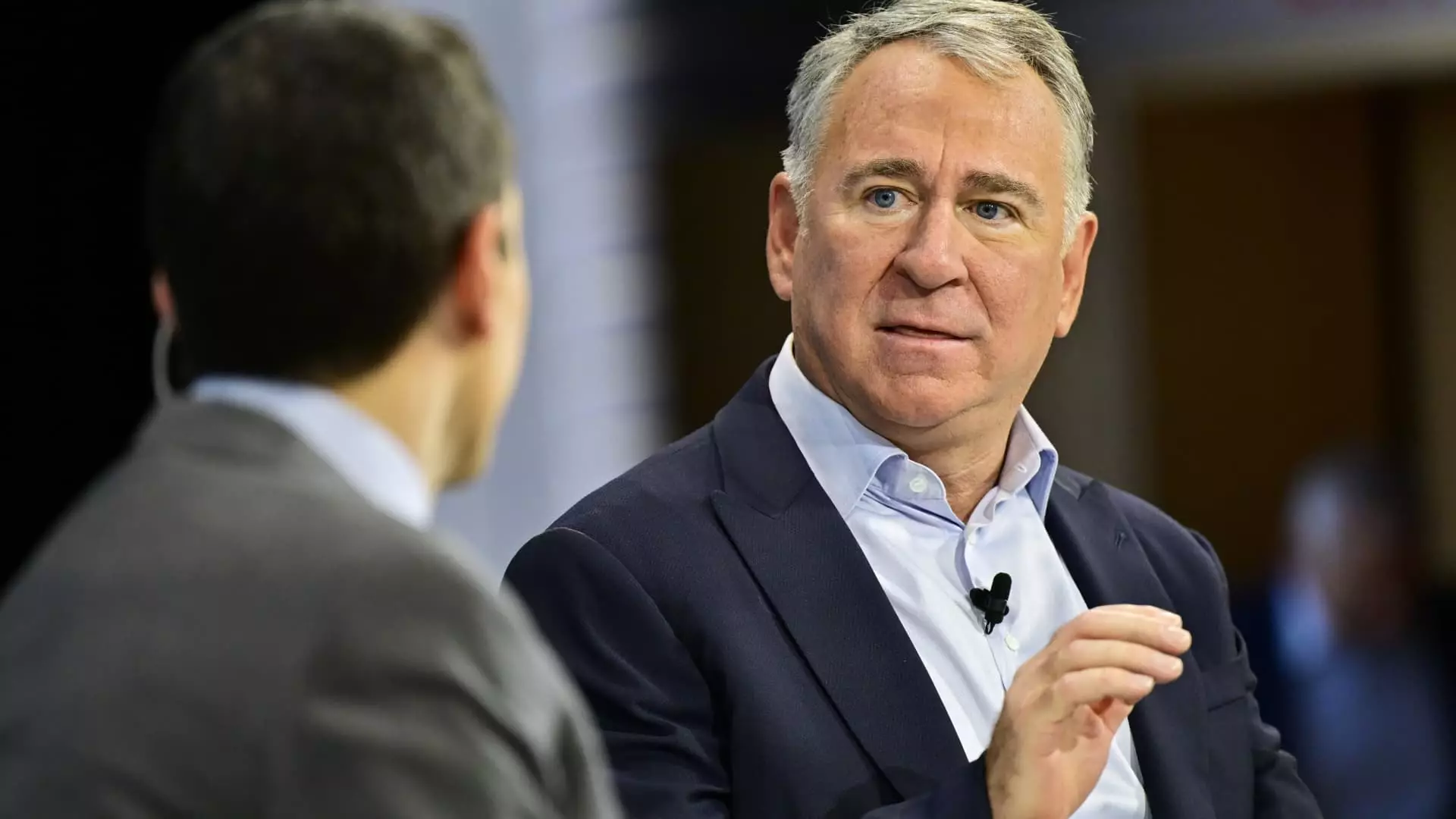Billionaire Ken Griffin’s prominent hedge fund, Citadel, showcased remarkable resilience in January, managing to secure a modest gain despite the prevailing market turbulence. Sources familiar with the fund’s returns indicate that Citadel’s flagship Wellington fund experienced a 1.4% increase during the month. This follows an impressive 15.1% surge in 2024, demonstrating its consistent ability to navigate complex market conditions. The Wellington fund operates under a multistrategy paradigm, with all five of its strategies—including commodities, equities, fixed income, credit, and quantitative trading—yielding positive outcomes in January, according to insider reports.
The diverse range of strategies employed by Citadel appears to be a crucial factor in its performance stability. For instance, the firm’s tactical trading fund recorded a commendable gain of 2.7% in January, which mirrors the performance of its equities fund, utilizing a long/short trading approach. Furthermore, the global fixed income segment also contributed positively with a 1.9% increase. The ability to leverage multiple trading strategies effectively highlights Citadel’s prowess in asset management and risk mitigation strategies.
January’s market dynamics were characterized by pronounced volatility as investors grappled with uncertainties stemming from political shifts and economic policies. The atmosphere was exacerbated by investor concerns regarding President Donald Trump’s protectionist trade policies, which many feared could disrupt market stability. An emerging competitor from China, the artificial intelligence firm DeepSeek, triggered a significant sell-off in major tech stocks like Nvidia, further complicating the market picture. Despite these disturbances, the S&P 500 index managed to gain 2.7% in January, reflecting a broader market recovery trend post a historically high two-year run that saw substantial returns exceeding 20%.
Griffin has not shied away from expressing his views on Trump’s protectionist approach, which he critiqued even before the administration’s policies took effect. He argued that while such tariffs might provide short-term advantages to select domestic firms by crippling their global rivals, they ultimately detract from the competitiveness of the corporate sector as a whole. Griffin posited that the longer-term ramifications of tariffs could stifle productivity and innovation within American companies, creating a detrimental cycle that harms the economy. This perspective underscores the intricate balance investors must strike between immediate fiscal gains and sustainable long-term growth.
Citadel’s performance in January is a testament to the firm’s adaptability and strategic foresight in an unpredictable market landscape. While the broader economy faces uncertainties influenced by political decisions and competitive pressures, the ability to employ diverse trading strategies positions Griffin’s firm advantageously. As markets evolve and react to ongoing global events, Citadel’s robust framework and Griffin’s analytical insights will likely continue to play pivotal roles in navigating the complexities of the investment world. Understanding these dynamics will be essential for investors looking to make informed decisions in an environment marked by volatility.

